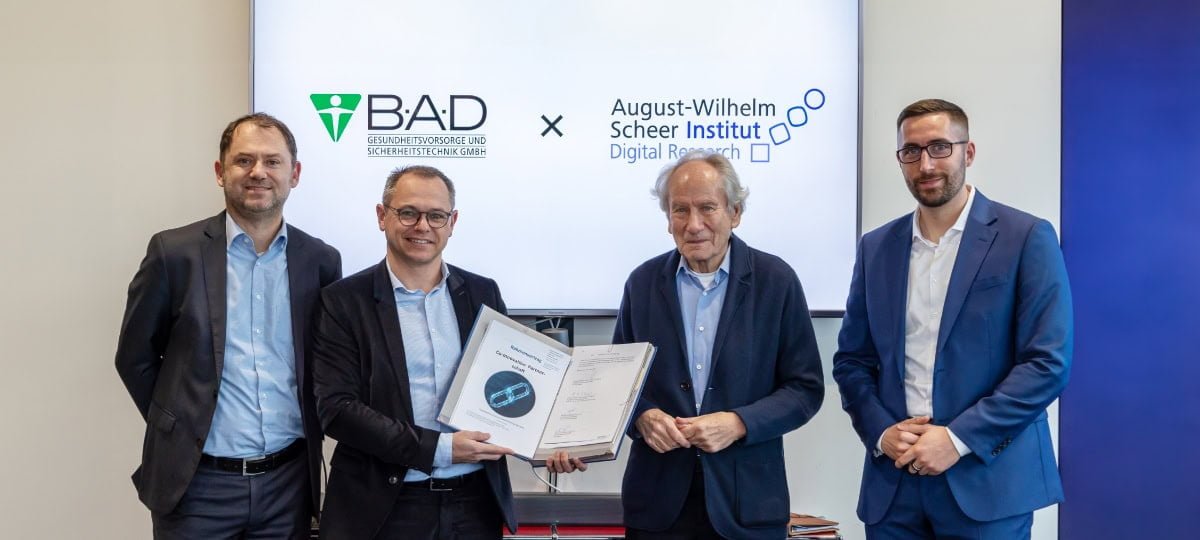The fine art of artificial intelligence


Machines that will be equal or superior to humans, this idea will certainly remain a vision for a very long time. Until scientists have developed a superintelligence (strong AI), we humans will be able to live and work well with weak AI.
Strong AI can replace humans, while weak AI expands our cognitive capabilities. The latter already offers us enormous advantages today when it comes to solving specific requirements.
AI is becoming central to the modernization of our society and economy. It will be instrumental in helping us meet global challenges: developing smarter cities, safer and congestion-free transportation, reducing energy demand, optimizing our power grids, reducing CO2 emissions, and better protecting the Internet. In view of the demographic development, increasing productivity through AI will become a decisive competitive factor.
Stimulate intelligence
Weak AI and also rule-based systems already offer us considerable benefits with a lot of potential today. They control financial transactions, make predictions, simulate the weather and economic developments.
They uncover anomalies, such as credit card fraud. They are ideal for diagnosis and prognosis in medicine. Here it is becoming apparent that artificial intelligence will first assess radiological images before a radiologist makes the final diagnosis.
It is superior to humans in pattern recognition of text, images, handwriting, materials and fabrics. It is elementary for predictive maintenance and servicing.
AI will unleash great potential in both economic and business terms: It not only relieves employees of constantly repetitive or even dangerous tasks, but is also much faster at analyzing and evaluating large amounts of data and making decisions and executing tasks based on it.
Great potential is attributed to production, where robotics will further automate manufacturing. This will make Germany competitive again as a production location. There will then no longer be any economic reasons for outsourcing production to low-wage countries.
Entirely new business areas are emerging through the connection of AI with networked products, processes and machines (Internet of Things, IoT).
AI is increasingly becoming a disruptive core technology. It will revolutionize our working life including today's software applications! Just like humans, machines are not error-free.
This is acceptable in many cases where health, life and death, or human judgment are not involved. We humans will use percentage tolerance levels to define the probabilities up to which we consider a calculation result to be correct.
Our task will no longer be to perform individual tasks or process steps ourselves, but to monitor and optimize the machine.
Information is the key
The flood of information overwhelms our human cognitive abilities. We do not use 80 percent of the information we collect! And every day and every year there is more information: Industry 4.0, the Internet of Things ... will cause the global volume of data to increase 10-fold by 2020.
Today's information overload is ideal for AI applications. However, the mass of this information is not suitable to be incorporated into an ERP like SAP.
What is needed is content- and context-sensitive software that manages and stores gigantic amounts of data very efficiently and that can be scaled horizontally as needed.
This has always been an intrinsic task and capability of enterprise content management systems (ECM) such as Doxis4 from SER. This is clearly illustrated by the example of DHL Express: 8.5 billion documents are currently stored in the Doxis4 Information Repository from SER. The average number of accesses per day is one million.
More than 20 years ago, it was already true that 80 percent of all information in a business context is unstructured. This has not changed to this day.
The Information Repository of SER's Doxis4 ECM software contains all of this information: from SAP data - both current and archived - emails, documents, social media content, websites, machine data, to images and videos.
In the age of artificial intelligence, information is finally becoming a production factor. Information logistics will become the most powerful factor influencing value creation in the future.
The information repository, the core of ECM software, becomes a safe for the new corporate currency: information. Used as a digital archive, this information contains empirical values and preserves memory.
The challenge for companies today lies in the technologically complex information management. In addition to SAP, there are numerous other business applications in use that store their data accordingly in their own databases and structures. The productivity of knowledge workers is already suffering as a result.
In the future, this condition will also have negative consequences on AI results. AI needs data from different information sources in order to learn from it and make predictions. This is another reason why integrating the information silos distributed across the company will become a strategic IT challenge more than ever.
Touch with a new technology
The human-computer interface will no longer be determined by keyboard, mouse, scanner and camera alone. Soon, all kinds of devices, products and software applications will respond to voice commands. Not in a technical language, but as if we were speaking from person to person.
For the first time, we are entering into a human-like dialog with the machine. What possibilities the current state of Natural Language Processing (NLP) offers an ECM is the subject of a joint research project by the Austrian Institute of Technology (AIT) and SER.
No more user interfaces
Unlike humans, virtual agents do not need user interfaces. User interfaces for data acquisition, searching for, forwarding or storing information will no longer exist in the classical sense in the future.
As is already the case with financial transactions today, humans will only intervene in the course of business if the system reports anomalies or could get out of control. With such algorithm-based ECM systems, business processes and many decisions will be largely automated.
Speaking of proactive information management, we are provided with forward-looking information in the context of our work, actions and decisions without having to search for it.
Companies, for example from the financial services sector, whose administration focuses on processing information, will be among the early adopters of these AI-based ECM systems. Accounting also generates enormous amounts of data that must be processed under increasingly complex legal regulations and strict compliance requirements.
Today, automated invoice receipt processing allows incoming invoices to be processed automatically right through to dark booking.
AI must serve and benefit
The great art of artificial intelligence must be to serve and benefit people and companies alike. We are only at the beginning of this epochal development, the end of which is not yet in sight.
Despite all the technology euphoria, digitization in companies is far from being so advanced that we should neglect it. Artificial intelligence requires digitization.
We should use the time until AI reaches "series maturity" to drive digitization forward. Powerful deep learning memories are the prerequisite. These and many other aspects are reasons why ECM systems are now at the top of most companies' wish lists.
ECM systems like Doxis4 have been using neural networks for classification and extraction for almost 20 years. They have a high utility value and are practical. They are just waiting to be deployed.





